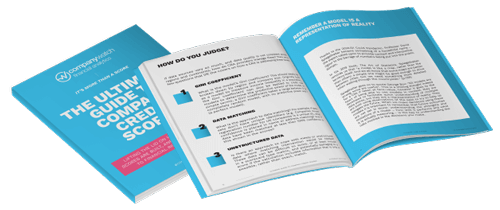Difference Between KYC and AML Explained

At their core, both Know Your Customer (KYC) checks and Anti-Money Laundering (AML) regulations are geared towards mitigating financial risk and protecting institutions from financial crime.
More specifically, by conducting rigorous AML and KYC checks, institutions can verify their customers’ and suppliers’ identities, assess risk profiles, and detect any suspicious activities. This level of due diligence before partnerships are solidified, is crucial for protecting institutions from financial risk. It reduces the risk of money laundering, terrorist financing, and other financial crimes.
On a reputational front, adhering to KYC and AML regulations also helps institutions protect their image, build customer trust, and avoid hefty fines and legal penalties.
Company Watch safeguards institutions against financial risk by offering Enhanced Due Diligence (EDD) and KYC checks. The checks highlight key red flags and allow businesses the opportunity to re-evaluate their partnerships to avoid financial and reputational loss.
This blogpost highlights the main differences between AML and KYC checks. It covers the following:
- What is Know Your Customer (KYC)?
- What is Anti-Money Laundering (AML)?
- The difference between KYC and AML processes
- How long does KYC verification take?
- Why is Enhanced Due Diligence (EDD) important?
What is Know Your Customer (KYC)?
Know Your Customer (KYC) is a regulatory requirement that compels financial institutions to verify the identity of their clients and suppliers.
In the UK, KYC checks are primarily mandated by the Financial Conduct Authority (FCA) under the Money Laundering, Terrorist Financing and Transfer of Funds Regulations 2017.
KYC verification typically involves a robust customer identification process i.e. collecting and analysing essential documents such as passports, driver licences, and proof of addresses. The documents are used to conduct due diligence - institutions or third-party business information providers verify the authenticity of the provided documents and conduct background checks. These allow stakeholders to assess a customer’s risk profile and make critical decisions about the partnership at hand.
What is Anti-Money Laundering (AML)?
Anti-Money Laundering (AML) is a set of regulations and procedures designed to prevent criminals from laundering the proceeds of illegal activities through the financial system. AML efforts begin with KYC checks, involving the verification of customer identities and risk assessments. It further incorporates several key elements, including Customer Due Diligence (CDD), transaction monitoring, and Suspicious Activity Reporting (SAR).
According to a 2023 report by the Basel Institute on Governance, financial institutions worldwide spent an estimated $200 billion annually on AML compliance.
The difference between KYC and AML processes
When it comes to risk assessment, KYC and AML are not pitted against each other. The KYC process is a fundamental component of AML compliance.
KYC specifically focuses on verifying customer identities and assessing their risk profiles. In contrast, AML encompasses a broader range of techniques, including transaction monitoring, sanctions and PEP screening, and more.
These AML measures are designed to monitor and mitigate risks throughout the customer relationship, extending beyond the initial KYC checks.
How long does KYC verification take?
The time required for KYC checks can vary significantly depending on several factors, including:
- Complexity of the customer or business structure
- The nature of the technology used to conduct the KYC checks
- Efficiency levels of both the financial institution and the customer
- Regulatory requirements and protections that may make acquiring information a hassle
For smaller businesses and suppliers, KYC checks can be completed within a few business days. However, for complex corporate clients, the process may take longer, potentially extending to several weeks.
To expedite the KYC verification process, it's advisable to use a third-party business information provider who can do a lot of the grunt work for you. Company Watch offers comprehensive company information, including registration details, director and shareholder information, financial data, and legal filings.
Why is Enhanced Due Diligence (EDD) important?
Enhanced Due Diligence (EDD) is a critical component of KYC checks. It is used by institutions specifically for high-risk customers, partners, or transactions. This heightened level of scrutiny is essential for mitigating risks in an instance where the level of overall risk is high
By conducting Enhanced Due Diligence, financial institutions can delve deeper into customer relationships, analyse complex transactions, and identify potential red flags.
A recent study by the Financial Action Task Force (FATF) found that financial institutions worldwide lose billions of dollars annually due to financial crime. Enhanced Due Diligence cuts this risk significantly. Company Watch provides highly advanced, easy-to-understand EDD reports that provide a complete breakdown of customers and suppliers.
Key takeaways
- KYC checks are an integral part of AML compliance, and focus specifically on verifying customer identities and assessing their risk profiles.
- KYC verification can take anywhere between a few days to a few weeks depending on the complexity and accessibility of the customer or supplier’s business.
- Enhanced Due Diligence is a critical component of KYC checks, and is used by institutions specifically for high-risk customers, partners, or transactions.

